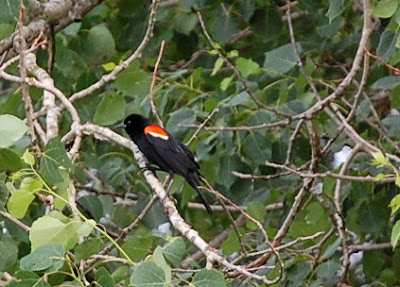Reflections - Jinxing the Fence
Tomato Blossom
Spence dreams of deer leaping over his garden fence. I’m haunted by earworms of his sad voice saying, You’ll jinx the fence.
His tomato plant torment began at the end of winter. Night after night, Spence tramped down the spiral stairs to the basement. He tenderly finger-pushed each seed—first Wood’s Famous Brimmer, then Amish Paste, Marglobe, Sub Arctic Plenty, Jersey Devil, and Roma—into his special mix of potting soil and extra perlite. With cats circling his legs, he set trays of planted seeds on heating pads. He watered, transplanted sprouts, and set baby tomato plants under grow lights on a table he’d built for nurturing the precious seedlings. He repeated the process until he had almost two hundred, healthy tomato plants.
In May, he hauled the seedlings to the hoop house to harden off.
The weather didn’t cooperate.
Weeks of temperatures too low or soil too wet delayed planting. The healthy seedlings grew into straggly teenage tomato plants and needed to get into the ground.
I strapped on knee pads, knelt by the string marking row, and dug. The wide trowel scritch-scratched against rocks. I dug deeper and deeper to make room for a handful of Spence’s compost and another of crushed egg shells under each of the eighteen tomato seedlings I transplanted.
Spence could have done the job faster, but he dragged various lengths of pvc pipes to construct the garden fence.
Keeping a safe distance from the scraping trowel and long pipes, robins hopped in the tilled soil and cocked their heads to hunt earthworms.
Progress.
However, Spence returned from his next morning’s garden check with clenched teeth. “A critter ripped out some tomato plants.”
In the garden, ripped-out plants littered the walkways and broken plants stuck in the mud. The critter had also left empty spaces where seedlings had been. Deer prints littered the garden.
“Deer didn’t eat my tomatoes last year.” He growled. “And they were outside the fence all summer.”
Filling in the spaces of lost plants and extending the row a tad, I transplanted eighteen more straggly seedlings. When I brushed against the leaves, they released a pungent, green fragrance.
Spence added sections to the fence and transplanted even more seedlings.
The deer came back.
I helped counter the deer destruction three more times. On one sunny day, Spence, who calls me a delicate butterfly, limited my garden time to forty-five minutes. I would have complained, but the sun spoke louder than Spence. Sweat added a wide, wet band to my sun hat, saturated my sports bra, and rolled off my nose onto wilted tomato plants. Pooped, I welcomed his shooing me inside.
Spence worked on the fence and infilled empty spaces daily.
Last Monday morning, the first full day of summer, he stood by the sliding glass door and hooted. “The doe’s standing in the asparagus patch and staring at the fence. It baffles her.”
Joining Spence and gazing at the five-foot high deer netting held up by pvc pipes, I remembered the times deer netting ensnared my feet. Hooves could get tangled too. No wonder she stared.
The doe ambled to the far end of the south garden, looked longingly through the fence, and left.
View of South Garden from the Deck
“Great!” My mouth watered in anticipation of the sweet, tangy sauce that Spence makes with homegrown Wells Wood tomatoes. “I’ll write a blog about the fence protecting our tomatoes.”
“Don’t!” Spence’s sunny demeanor clouded into a dark thunderhead. “You’ll jinx the fence.” And later that afternoon, as if to underscore his warning about my blog topic, he tilted his head toward the north garden blueberry cage where he’d help lift a cover cloth over the seven foot high frame. “You can say we’re getting old. We hardly argued.”
I fastened the cloth to the frame with a cable tie. “I’ve already written about blueberries. Twice.”
“You can never have too many blueberry stories.”
I didn’t take his advice. Instead of forcing a blueberry story out of nothing, I pondered an arc for the obvious conflict of the deer and the tomato seedlings.
The next morning, Spence slung open the glass door and shouted. “Get out of my garden!” He turned to the cats and me. “Did you see that? The doe was in the garden. She leapt over my fence to get away.” He clenched his fists and shook his shoulders as if to rid himself of the image.
Perhaps I jinxed the fence.
Your thoughts aren’t connected to the deer’s stomach.
I should have listened to his plea and worked on a boring blueberry saga.
Deer eat five hundred kinds of plants. They take what’s available.
But the deer didn’t eat tomatoes last year.
They were trellised last year. Weather kept Spence from building the trellises first this year.
Wednesday morning, Spence came back from his garden check with slumped shoulders. “I’m crying over my lost tomatoes.” He plunked his straw sunhat on top of the coat stand. “What’s the use of planting more. The deer will just eat them.”
Spence had a point. He’d planned for six or seven tomato rows. Of the hundred and ten seedlings we planted in four rows, deer destroyed over sixty before we got a single green tomato. With all the infilling, Spence will be lucky to start the fifth row.
“It’s just chaos out there now.” He scowled at the garden through the glass door.
Rubbing his back, I gazed at the garden too. His plan of keeping the six varieties of tomatoes in separate sections got jumbled by infilling empty spaces. Deer ate plants nearly as fast as Spence replaced them. He had a limited number of plants while the deer had all summer to gobble. To top it off, nature, which abhors a vacuum, filled every cubic millimeter of bare soil with weeds—
a very different picture from the neat garden the first day I’d helped Spence.
Fortunately, he didn’t give up. He infilled and rebuilt torn parts of the fence. Next week he’ll buy more deer netting to replace the ripped parts and more row cover cloth to baffle the deer. “I’ll hang the row cover over the deer netting. If they can’t see where they’re going, they won’t jump in.”
The first tomato formed on a Sub Arctic Plenty plant, and when I asked Spence if he had a chore for me in the garden he said, “You might as well infill tomatoes. The deer are running out of things to eat.”
He dreams of deer leaping into the garden.
I hear his sad-voice warning.
But we still hope for fresh-from-the-vine, ripe tomatoes.
First Tomato - Sub Arctic Plenty
BLUEBERRY BLOGS
“Blueberry Bunnies” July 7, 2019
“Cat-Escaping Craziness” June 28, 2020





